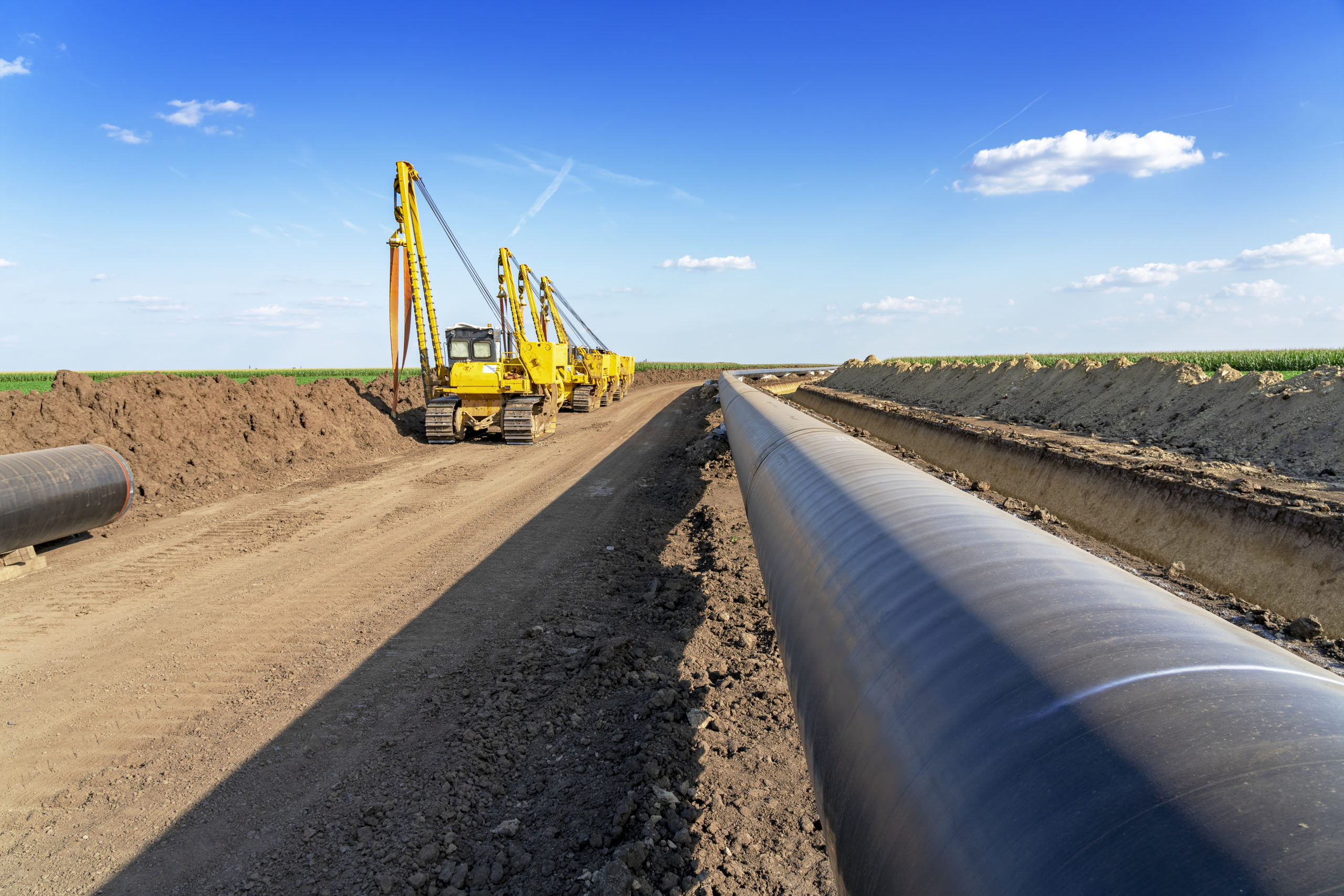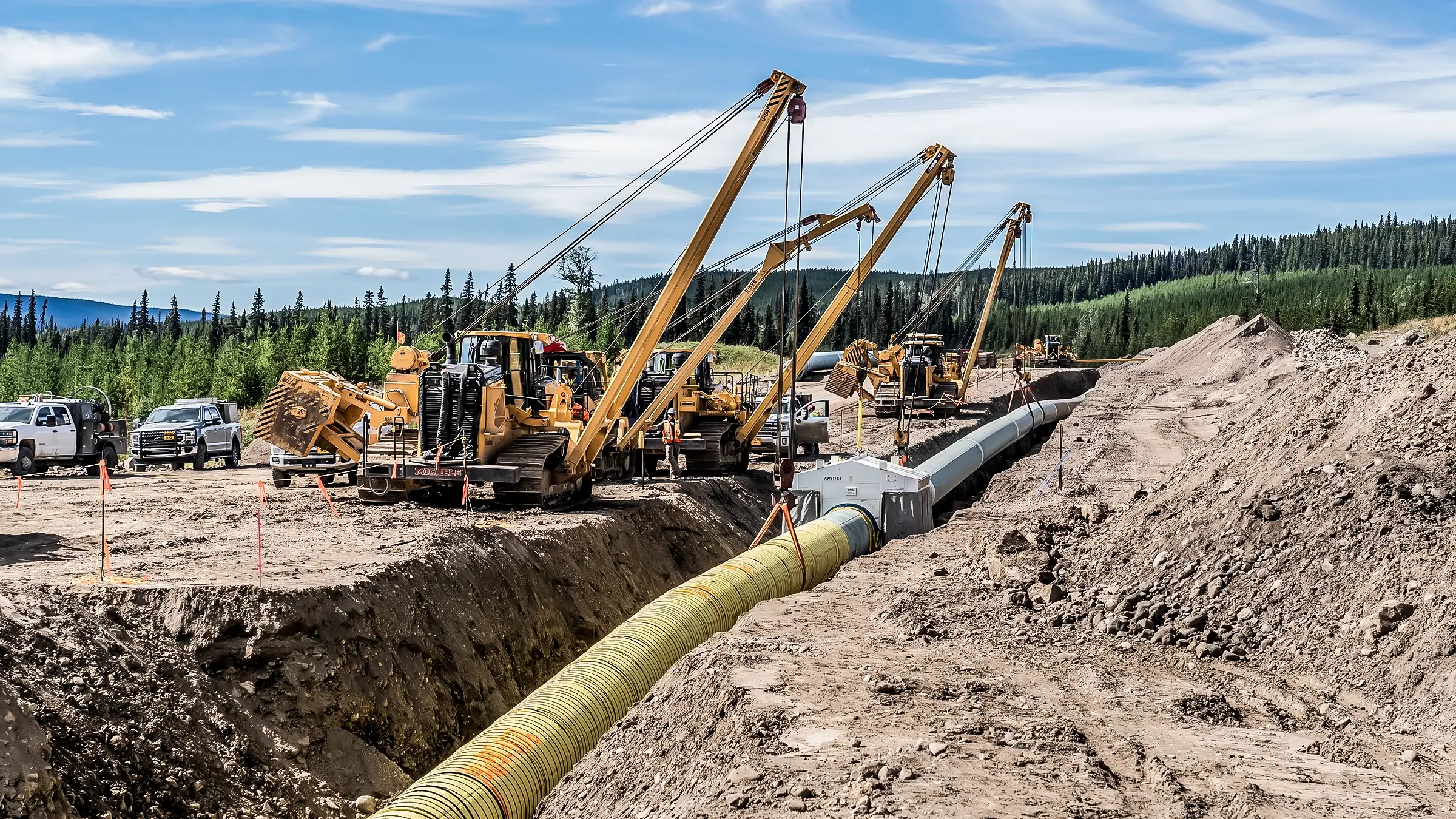The Evolution of Leak Detection Technology with Creek Pipe Midland
Wiki Article
A Comprehensive Overview to Understanding Pipes and Their Role in Construction
Pipes are crucial elements in building, offering essential features in gas, water, and waste management. Their option and application can considerably influence a building's efficiency and security. Numerous materials, such as PVC, copper, and PEX, provide unique advantages matched to specific requirements (Creek Pipe Company). Recognizing these aspects is essential for any type of construction project. As one discovers the ins and outs of pipelines, the implications for conformity and public health come to be significantly noticeableThe Significance of Pipes in Building and construction
Pipes function as essential conduits in building, helping with the activity of water, gas, and waste throughout structures and infrastructure. Their role prolongs past simple transportation; they are essential for making certain the functionality and safety of business and domestic settings. Properly installed pipes add to the efficient distribution of sources, making it possible for everyday activities such as food preparation, bathing, and heating. Pipelines play a critical role in waste management, guaranteeing that sewage and wastewater are effectively gotten rid of from living spaces.The relevance of pipelines is also reflected in their influence on public health and wellness. Insufficient or faulty piping systems can result in contamination and harmful problems, making quality materials and installation techniques crucial. Additionally, pipelines must abide by different structure codes and guidelines, which are made to protect both residents and the atmosphere. As a result, the significance of pipelines in construction incorporates both useful capability and vital wellness considerations.Sorts Of Pipes Made Use Of in Building Projects
Various sorts of pipes play a substantial role in building tasks, each developed to satisfy details needs and applications. Amongst the most commonly utilized pipe kinds are PVC, which is lightweight and immune to rust, making it suitable for drainage and vent systems. CPVC pipes, similar to PVC, can stand up to greater temperatures, commonly made use of in warm water systems. Copper pipelines are known for their toughness and reliability, frequently employed in plumbing and heating applications. Galvanized steel pipelines, while less usual today, were once a standard for water system lines as a result of their toughness. In Addition, PEX (cross-linked polyethylene) pipelines are obtaining appeal for property plumbing due to their flexibility and resistance to scaling and chlorine. Cast iron pipes are favored for their sound-dampening properties, typically used in waste and dirt systems. Each pipeline kind offers unique functions, making certain reliable procedure in building and construction tasks.Common Products for Pipeline and Their Characteristic
In building, the option of pipe products is vital for ensuring durability and capability. Steel pipelines supply strength and resistance to high stress, while plastic pipes offer lightweight and corrosion-resistant choices. Composite pipelines incorporate the advantages of both products, making them flexible alternatives for various applications.Metal Pipe Options
Steel pipes are indispensable elements in construction, offering a series of choices that satisfy various applications and environmental conditions. One of the most typical products consist of steel, copper, and cast iron. Steel pipelines are understood for their toughness and longevity, making them ideal for high-pressure applications. Copper pipelines are preferred for their corrosion resistance and antimicrobial homes, typically utilized in pipes systems. Cast iron pipes supply superb noise insulation and are ideal for waste and drainage systems. Each steel type has distinctive advantages; as an example, galvanized steel can resist rust, while stainless-steel supplies remarkable deterioration resistance. Choosing the proper steel pipeline depends upon aspects such as expense, environmental direct exposure, and the details needs of the construction task.
Plastic Pipeline Advantages
Plastic pipelines have gotten appeal in building and construction due to their lightweight nature and versatility. These pipes, made from products such as PVC, CPVC, and PE, deal outstanding resistance to rust and chemical damage, making them appropriate for different applications. Their ease of setup further enhances their allure, as they can be reduced and signed up with without special tools. Additionally, plastic pipelines are normally more cost-efficient contrasted to steel choices, adding to lower general project costs. Their smooth interior surface areas reduce friction and improve flow prices, while insulation residential properties assist preserve temperature control in plumbing systems - Creek Pipe Pipeline Construction. With a variety of dimensions and configurations readily available, plastic pipes successfully fulfill the varied needs of modern building tasksComposite Pipeline Characteristics
Compound pipes integrate different products to leverage their specific strengths, resulting in enhanced performance and sturdiness. Usually, these pipelines consist of layers that may include porcelains, plastics, and metals, each adding distinct properties. The internal layer may be made of a corrosion-resistant material, while the external layer gives toughness and impact resistance. This mix allows composite pipes to hold up against extreme temperature levels and pressures, making them appropriate for a wide variety of applications, consisting of water system and industrial processes. Furthermore, composite pipelines are often lighter than typical materials, facilitating simpler handling and installment. Their versatility and versatility to various environments make them a preferred selection in modern-day construction projects, guaranteeing durability and efficiency in fluid transportation systems.Applications of Piping in Pipes Systems

Electrical Channels: The Role of Pipeline in Wiring
In modern building, electric conduits play a crucial role in making sure the safe and effective routing of electric circuitry throughout structures. These pipes supply a protective path for electrical wires, safeguarding them from physical damages and environmental factors. Different materials, such as PVC, metal, and adaptable avenues, are used depending on the specific demands of the installation.Furthermore, channels help in arranging circuitry systems, minimizing the danger of electric dangers like short circuits or fires. They additionally promote much easier upkeep and upgrades, as cables can be accessed and changed without substantial disruption to the structure.Proper installation of electric channels is essential for compliance with building ordinance and safety laws. This structured strategy not only boosts the durability of the electrical system yet also adds to the total security and performance of the building, making electric avenues essential in contemporary building and construction methods.Selecting the Right Pipeline for Your Task
Exactly how can one assure the ideal pipeline selection for a building task? The selection process starts with comprehending the details requirements of the job, consisting of the kind of fluids being transferred, stress ratings, and environmental conditions. Material choices, such as PVC, steel, and copper, should be evaluated based upon resilience, deterioration resistance, and thermal properties.Next, one should consider the pipeline's diameter and flow ability to identify efficient operation. Governing criteria and codes should additionally be abided by, as they dictate the appropriate products and practices for details applications. Consulting with specialists and utilizing comprehensive resources can further help in making informed decisions.Finally, examining the cost-effectiveness of numerous alternatives is crucial, balancing preliminary costs with long-lasting maintenance and substitute expenses - Creek Pipe Company LLC. By carefully assessing these variables, one can with confidence choose the most appropriate pipe for their construction task, assuring both functionality and conformity
Upkeep and Evaluation of Pipes in Building
Appropriate choice of pipes establishes the structure for their lasting performance, making maintenance and assessment essential components in building. Regular upkeep assurances that any type of possible issues, such as leakages, corrosion, or clogs, are determined and addressed immediately, decreasing costly repair services and job hold-ups. Set up inspections, consisting of aesthetic analyses and stress tests, play a necessary function in examining the stability of pipe systems.Additionally, checking ecological variables, such as temperature level variations and dirt conditions, can help anticipate wear and tear. Making use of innovative innovations, such as CCTV for indoor evaluations, can improve the efficiency of maintenance initiatives. It is essential to document assessment searchings for and upkeep tasks to establish a thorough history of the pipeline systems. By prioritizing upkeep and examination, building and construction experts can prolong the life expectancy of their piping systems, guaranteeing they run effectively and reliably throughout the task's period.Frequently Asked Inquiries
How Do Pipelines Affect Power Performance in Structures?
Pipes significantly affect energy effectiveness in structures by regulating heating and cooling down systems. Appropriate insulation and materials decrease power loss, while effective pipes designs decrease water use, inevitably leading to reduced power intake and functional expenses.What Regulations Govern Pipeline Installation in Building And Construction?
Rules controling pipe installment in construction normally consist of nationwide and local building codes, plumbing codes, and safety and security requirements. These guarantee compliance with architectural honesty, product requirements, and health and wellness needs, promoting safety and security and efficiency in construction practices.Can Pipeline Be Recycled After Usage?
The concern of pipeline recyclability is substantial. Numerous products, such as steel and particular plastics, can be reused effectively. However, the problem and kind of pipe influence reusing usefulness, demanding proper evaluation prior to disposal.
Exactly How Do Climate Condition Effect Pipe Efficiency?
Climate condition significantly influence pipe performance. Extreme temperature levels can cause development or contraction, while dampness may result in deterioration. Additionally, hefty rainfall can enhance soil stress, affecting stability and general functionality of the piping system.What Are the Indications of Pipe Failure to Expect?
Signs of pipeline failure include leaks, uncommon noises, staining of water, reduced water stress, and noticeable corrosion. Normal evaluations can aid find these issues early, making certain and avoiding pricey repair services system performance in the long term. Pipelines play a critical duty in waste administration, ensuring that sewage and wastewater are effectively eliminated from living spaces.The relevance of pipes is likewise mirrored in their impact on public wellness. In building and construction, the selection of pipe materials is vital for making certain toughness and capability. Metal pipelines provide stamina and resistance to high pressures, while plastic pipes give corrosion-resistant and light-weight alternatives. Furthermore, pipes are used to eliminate wastewater, linking bathrooms, sinks, and drains pipes to metropolitan sewage systems or septic tanks.Different kinds of pipes, such as PVC, copper, and PEX, are selected based on factors like durability, cost, and particular application needs. How can one guarantee the right pipeline choice for a building and construction job?Report this wiki page